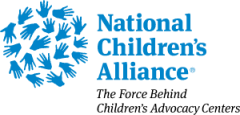What’s Next?
So What Now?
After your child’s visit to the CAC, you may be asking yourself “what now?” The days and weeks after your visit may be overwhelming and upsetting. This is an important time to begin the healing process. Your family advocate will help you navigate what happens next.
Your child may want to talk about what happened during the interview. It is important to remain supportive and listen to your child. However, do not question them about the interview and what was discussed. If you are concerned about details they discuss with you, talk with your investigative team instead of questioning your child. Assure your child that they are brave for talking and tell them you love and support them no matter what.
How Children React to Abuse
There is no “normal” or “right way” to feel after abuse has occurred. It is common for children to feel fear, guilt/shame, confusion, anger, and/or depression. Below are some behaviors you may see in your child after they have experienced abuse:
- Anxious
- Clingy
- Regression (thumb-sucking, bed wetting, etc.)
- Repetitious play
- Changes in school performance
- Role testing (homework, bedtime, chores, etc.)
- Aches/pains with no cause
- Flashbacks
- Loss of relationships
- Risky Behaviors (drugs, alcohol, sex, etc.)
- Negative self-image
- Depression
- Withdrawal/isolation
- Intense fear
- Sexualized behavior
Referrals
Your family advocate will discuss a variety of services with you. The most common referrals are for counseling and medical evaluation.
Counseling can:
- Help you process and make sense of complex feelings and promote resiliency
- Promote self-esteem
- Provide prevention and safety education to reduce risk of further abuse
- Help children learn the abuse is not their fault and nothing is wrong with them
- Help children and families feel hope and re-establish safety
- Help restore family stability and healthy functioning after abuse
Medical evaluations are done at Guthrie Cortland Medical Center
The purpose of the exam is to:
- Ensure the health and well-being of your child
- Diagnose and treat medical conditions
- Reassure your child that everything is okay with their body
- Document any physical or forensic findings
For more information, please speak with your child/family advocate.
How You Can Help
It is important for you to take care of yourself so you can take care of your child. That means working through your reactions and feelings about the abuse. It is common for caregivers to feel denial, anger, guilt, fear, and loss. One of the most important factors in your child’s recovery is having a supportive adult that believes them and helps them feel safe. Recognize that this process takes time.
TAKING CARE OF YOU
- Consider counseling for yourself to cope with feelings, challenges, and decisions
- Engage your support system to help (family, friends, and service providers)
- Practice self-care (exercise, take a break, etc.)
TAKING CARE OF YOUR CHILD
- Listen supportively, but do not question your child about the abuse
- Return to a normal routine as soon as possible
- Re-establish safety and be consistent
- Allow children to feel their feelings
- Tell them the abuse is not their fault and you believe them
- Tell them you love and support them
- Be patient…healing takes time
- Find a trauma therapist for your child




